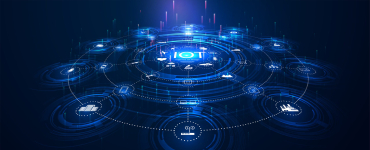- Over a quarter of Germans already using digital voice assistants
- High data protection standards as key to acceptance of AI technologies and services
- Artificial intelligence must focus on the human being
Whether it’s smart household appliances or home entertainment – when the IFA (the global innovations show) opens its doors in Berlin on 6 September, virtually all of the innovations on display will be using the Internet, for example for streaming series and films or for gaming: “Today’s worlds of entertainment would be inconceivable without the Internet,” says Alexander Rabe, Managing Director of eco – Association of the Internet Industry. It’s not just smartphones and televisions; refrigerators and washing machines are also connected to the Internet of Things (IoT). Artificial intelligence is increasingly assuming the function of a central point of contact for our smart home and is managing it intelligently.
Over a quarter (27.3 percent) of Germans are already use digital assistants such as Google Assistant, Amazon Alexa, Siri, or Cortana. 5.7 percent of Germans are even using their smart loudspeakers several times a day – according to the results of a representative survey by eco – Association of the Internet Industry. “The development potential offered by artificial intelligences such as voice assistants for companies and society is huge – but it can only be harnessed if providers and operators do their homework in equal measure,” says Rabe. This includes, for example, the implementation of high data protection and security standards during product development, as well as the regular installation of security updates for connected products in the home.
Data protection as the most important prerequisite for all voice assistant services
Fear of possible misuse of personal data has so far prevented 41.9 percent of respondents from participating in the new worlds of entertainment. Many people are also concerned about possible misuse of voice assistants by third parties (12.5 percent), or about potential surveillance and state prosecution (11.1 percent). “If the providers succeed in addressing people’s concerns with demonstrably high security standards, then numerous new services for companies will emerge on the strength of digital voice assistants,” says Rabe.
The providers and operators of artificial intelligence systems are thus called upon to communicate the mode of operation of their services and products in a manner which is understandable and transparent. Users and involved parties must be helped to understand how artificial intelligence works, why the systems make a recommendation or decision in a certain situation and form, and which data is processed and possibly generated. This is the only way to ensure that artificially intelligent services will be widely accepted by society as a whole. This demand has already been set out by the eco Association in its Guidelines for the Handling of Artificial Intelligence.
Voice assistants can do more
So far, people are still mainly using digital voice assistants to find information on the Internet (32.4 percent). Virtual assistants are also being used to listen to music, navigate in the car, or be reminded of appointments. But the devices today can already offer much more, such as applications in the care sector, where they are helping older people to live longer in their own homes – a goal of the Smart Service Power initiative. In the car, too, voice assistants offer more ease and comfort by allowing functions to be voice-controlled.
“AI has to place people center stage and assist them; multitude new services will then be enabled on its basis, coordinated and controlled by digital voice assistants,” says Rabe. Trust ensues when people and their security are placed in the foreground in the design of new solutions.
Further information:
Central challenges and solutions of artificial intelligencewill be discussed at the eco Congress FAST. FORWARD. FUTURE. Shape the Internet of the Future with Artificial Intelligence. Here, the eco Association will explain and talk over the central challenges and solutions of AI with the visionaries and driving forces from politics, industry, society, as well as operators of digital infrastructures and services. The Congress will take place on 21 November 2019 in Cologne. Further information on the program and registration for the eco Congress.




